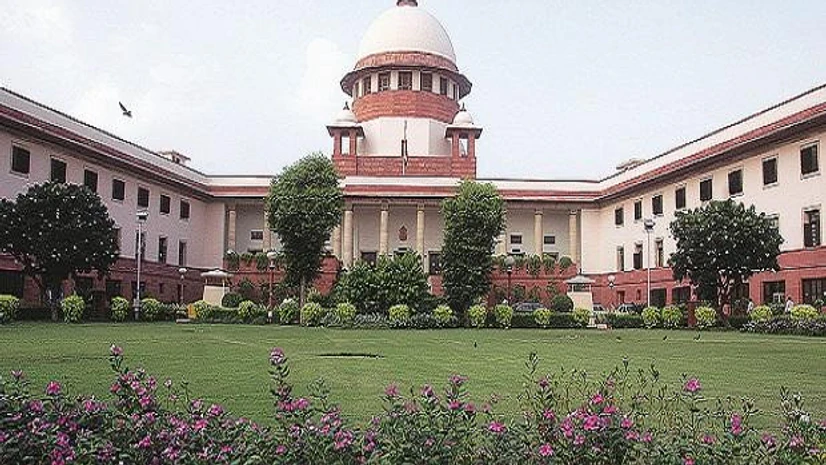The Supreme Court Wednesday said it does not want freedom of press to be muzzled or stifled but it cannot create a separate avenue for journalists to approach it directly for quashing of FIRs lodged against them.
The apex court stated this while hearing a plea filed by Foundation for Independent Journalism, which publishes digital news portal The Wire', and its three journalists seeking quashing of three FIRs lodged against them in Uttar Pradesh.
A bench headed by Justice L Nageswara Rao asked the petitioners to approach the Allahabad High Court to seek the quashing of FIRs and granted them protection for two months.
"You go to the high court and argue for quashing. We will protect you in the interim," said the bench, also comprising justices B R Gavai and B V Nagarathna.
"We cannot create a separate avenue for journalists to directly come to this court under Article 32 for quashing of FIRs," the bench observed.
The top court said it understands the importance of right of free speech and "doesn't want freedom of press to be muzzled".
More From This Section
The apex court told the counsel appearing for the petitioners that it will grant protection and they can approach the high court on the issue.
The plea was filed by Foundation for Independent Journalism and three journalists -- Seraj Ali, Mukul Singh Chauhan and Ismat Ara -- who have sought quashing of three FIRs lodged against them at Rampur, Ghaziabad and Barabanki in Uttar Pradesh as well as the proceedings arising out of them.
The petition, filed through advocate Shadan Farasat, said these FIRs have been filed solely on account of journalistic reporting of various events and occurrences of public relevance.
It said FIR at Rampur was lodged in January this year while the other two FIRs were registered in June.
"No part of the matter published is even remotely an offence, although it may be unpalatable to the government or some people, it said, adding that FIRs have been lodged against the portal and its scribes in Uttar Pradesh.
The plea said that FIR lodged in Barabanki was in connection with a news story on the demolition of a mosque in the area in May 2021 by the police on the orders of the district administration.
"A news story is entitled to record and convey the aspirations, anguish, and perspective of the people, even if these are not in accord with the thinking of the State or its agents. This is precisely what the media in a democratic country is meant to do," it said.
Besides seeking quashing of the three FIRs, the plea had also sought a direction restraining UP Police from taking any coercive action against the petitioners in connection with these cases.
It had also urged the apex court to lay down guidelines to prevent the alleged misuse of Indian Penal Code provisions, including sections 153-A (promoting enmity between different groups on grounds of religion, race etc) and 505 (statements conducing to public mischief), particularly against media houses and journalists exercising their constitutionally protected right to free speech and expression while reporting.
The plea said it is not for the police to "sit in judgment" over the media for its reports.
"The media is meant to ventilate the problems of ordinary people, the nature and effect of administrative policy, and differing world views," it said.
It alleged that relevant IPC provisions which deals with actual offences against communal harmony are presently being "subverted and misused" and used to "gag any media reportage" on incidents that may have a communal, religious or political angle.
It said role of media reflects the citizen's right to know and ensure accountability in governance and if this routine duty becomes easily vulnerable to criminal process, democratic institutions will suffer.
"The petitioners also pray for appropriate guidelines to prevent this manner of use of the criminal process, which has a chilling effect on media freedoms and the right of the people to be informed," it said.
The plea has also referred to the May 31 order of the apex court which had granted protection to two news channels which were booked under the sedition law.
"We are of the view that the ambit and parameters of the provisions of sections 124A (sedition), 153A and 505 of the Indian Penal Code 1860 would require interpretation, particularly in the context of the right of the electronic and print media to communicate news, information and the rights, even those that may be critical of the prevailing regime in any part of the nation," the apex court had said in its May 31 order.
(Only the headline and picture of this report may have been reworked by the Business Standard staff; the rest of the content is auto-generated from a syndicated feed.)

)
